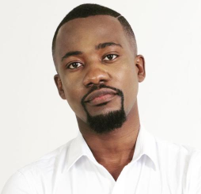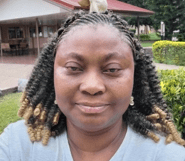Bridge for Equity Ghana, a Non-Governmental Organisation that focuses on gender education and child protection, has called on government to increase access to digital education to children in basic schools especially those in rural communities.
In an interview to mark World Children’s Day, Founder of the organisation, Lilipearl Baaba Otoo, she noted that there is an increase gap over the years between the realities of academia and the evolution of digitization in the educational sector in Ghana which needs primary attention.
She said “We often hear that the world is changing, the world is moving forward, and we are in a digital era but go to schools in Kasoa or even just in Accra here and most of the children in deprived communities do not have access to a common desktop to understand the basics of ICT. We expect these children to grow up and compete with not just Ghanaian students who have access, but also with international students. I don’t know how this works or this is ever going to work.
So, there was Free SHS, which is an amazing initiative by the way, but what do we do to sustain such freebies? How are we involving the children to evolve and meet the competitive demands of employment and entrepreneurship? This cycle of lack in the educational system has been in existence for far too long. If we are looking forward to a better future for every child as the theme for this year is, then we, including NGOs, CSOs, need to wake up and do more to support government because if we are to wait for government, we could be waiting forever.”
Lilipearl noted that there have been interruptions and learning losses that have been experienced because of the COVID-19 pandemic and this presents an opportunity for governments to increase their effort to bringing stability in education to protect the child.
According to her, child protection includes every effort and measure put in place to support the overall well-being of the child’s development. “This is why countries came together to sign the Convention of the Right of the Child to protect the rights of children in all areas of their lives including their right to quality education. COVID-19 has amplified the inequalities that exist in children’s education and once a problem arises, there is an opportunity to find solutions to it”.
As the organisation celebrates its 5th Anniversary in December, the Founder revealed that one of the major activities to mark the year is to provide Digital Skills Training class for young women to increase their access to employment and entrepreneurship.
“We can’t emphasize enough the importance of digitisation and that is why as part of activities to mark our 5th anniversary, we will be providing digital skills for young women. We will also be having conversations on investments, social enteprises and taxation. We are doing this to create understanding and to open opportunities for young people to become tech savvy, to have employable skills and to also learn to make good investments to secure their future”, she added.
About World Children’s Day
World Children’s Day was first established in 1954 as Universal Children’s Day and is celebrated on 20 November each year to promote and children’s welfare. Since 1990, World Children’s Day also marks the anniversary of the date that the UN General Assembly adopted both the Declaration and the Convention on children’s rights.
World Children’s Day offers each of us an inspirational entry-point to advocate, promote and celebrate children’s rights, translating into dialogues and actions that will build a better world for children.










